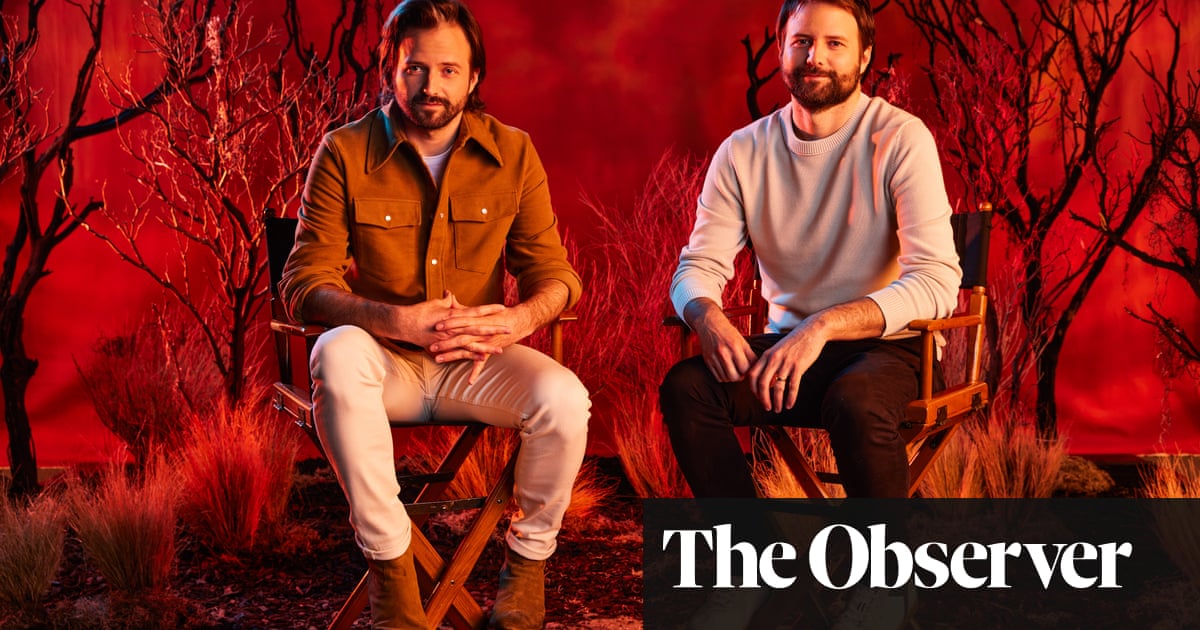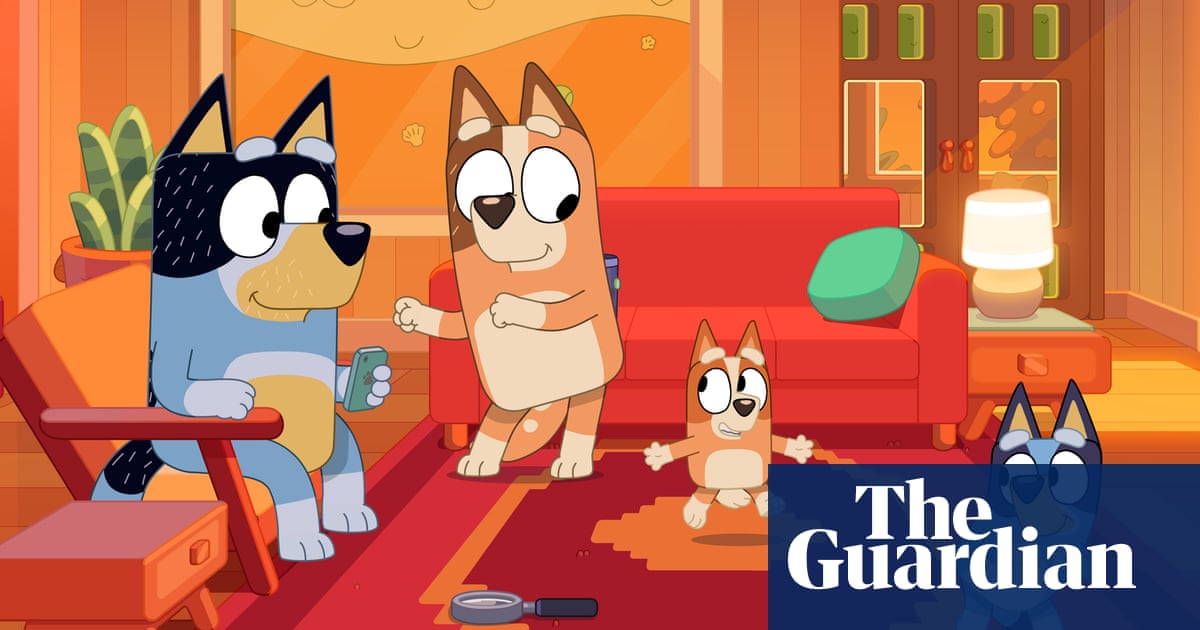
The sitcom has a long history of being dead. According to the former NBC president of entertainment, Warren Littlefield, in the early 1980s many people believed the sitcom was over. In 1999, Entertainment Weekly noted the genre’s demise. In 2005, so did Victoria Wood. The following year, the former ITV director of programmes, David Liddiment, made a programme called Who Killed the Sitcom? In the decade and a half since, similar questions have been posed repeatedly by publications on both sides of the Atlantic. Declaring the sitcom dead now seems more like an annual ritual than a convincing take on the state of comedy. But what if this time it’s actually true?
There are a few reasons why the sitcom seems, if not comprehensively deceased, then at least less responsive than it has ever been. In terms of the comedy zeitgeist, the sadcom – a frequently bleak drama hybrid – continues to rule (see: I May Destroy You, Feel Good, This Way Up, Insecure). Streaming giants increasingly shape our viewing habits, and they don’t tend to make sitcoms (their discrete episodic plots mean they are not very bingeworthy, for a start). The newly established National Comedy Awards, meanwhile, doesn’t include a sitcom category, while Bafta dropped its sitcom award in 2015 and replaced it with one for scripted comedy: this year’s winner, the comedy-horror anthology Inside No 9, in no way fits the sitcom mould.
Sitcoms haven’t merely been dismissed from service, they have also been torn apart. While the form has long been self-reflexive (see: 30 Rock, Seinfeld), recent shows such as WandaVision and Kevin Can F**k Himself have used their meta-ness in order to cast a more critical eye on the sitcom, pointing out its romanticising, anaesthetic qualities. The latter, which switches between rosy studio comedy and bitter sadcom, essentially called out the sitcom for its misogynistic tendencies. This kind of high-concept approach is also common to many of the most clearly comic – ie not also seriously dramatic – shows, which increasingly incorporate the supernatural or sci-fi (examples include Ghosts, Avenue 5 and What We Do In the Shadows).
In the UK, meanwhile, the few established sitcoms we did have are falling like dominoes, with Friday Night Dinner, This Country and People Just Do Nothing all bowing out in the past couple of years. British sitcoms do still get made, but tend to either flop or fly under the radar. Most are niche concerns; none of them (except perhaps Motherland) have become national talking points.
None of this is proof that people don’t want to watch sitcoms any more. Although streaming giants aren’t making them, they are spending an incredible amount of money acquiring them. This year, Netflix reportedly paid over $500mfor Seinfeld, while HBO Max will pay $425m for Friends over the next few years. In 2018 and 2019, Ofcom declared Friends the most streamed show of the year in the UK, while last year the American version of The Office was named the most streamed show in the US. Vintage sitcoms have always attracted decent audiences – think British reruns of 1970s shows on terrestrial TV in the 1990s – but this time the audiences seem decidedly younger. It feels like 90s and 00s sitcoms are beginning to resemble classic rock: an inherently nostalgic high point for the genre that future generations will continue to be schooled in.
Yet, it doesn’t seem right to give up on the genre just yet – not least because the funniest and most novel comedy currently on British TV just happens to operate largely within the parameters of a conventional sitcom. Stath Lets Flats, which returns for a third series this week, has most of the hallmarks of a traditional half-hour comedy: a distinctive setting (oddly named estate agents Michael & Eagle), a cast of extremely quirky characters and primary plotlines that are resolved by the end of each episode. The humour is not dry or melancholic: it is cartoonish, fuelled by pratfalls and people saying ridiculous things. Stath is not a show designed to assess the state of the nation, or dive deep into a dysfunctional psyche, but to make people laugh: the clothes are funny, the situations are funny, the speech patterns are funny, the relationships are funny.
If Stath can do all these things and not feel in the least bit stale, surely that suggests there is still life in the traditional sitcom? Maybe. But then again, the show, which is written by and stars Jamie Demetriou, alongside his sister Natasia and Al Roberts, Katy Wix and Kiell Smith-Bynoe, is no throwback. In many ways it is just as contemporary as the slew of desolate dramedies or formally experimental genre-blenders that define this televisual period. In fact, the ways Stath has managed to fuse tradition with innovation help to explain how the sitcom has managed to apparently die so many times – and live to tell the tale.
Looking back, 2005 seems like a golden age for the British sitcom. The Thick Of It, Extras and Nathan Barley all debuted. Peep Show was entering its imperial phase. The Mighty Boosh was in the process of becoming a pop cultural phenomenon. We had Green Wing and Nighty Night. The following year would produce Lead Balloon, The IT Crowd and Not Going Out. Even BBC1’s mainstream “My” sitcoms (Family and Hero) were still going strong. So why were people in mourning?
Mainly because the definition of sitcom was in flux: what seems obviously sitcom now wasn’t 15 years ago. When she spoke about the issue, Victoria Wood was talking expressly about “the kind of sitcom that is filmed in front of a studio audience and has very obvious jokes,” whose death she attributed to The Office and The Royle Family’s naturalism and their “ironic, self-aware comedy.” The idea that two of the greatest examples of the genre actually killed it off seems slightly absurd – but it is hard to deny that they did eventually help to destroy the studio sitcom, with its accompanying laugh track.
As for the “obvious jokes,” Wood was right about that too. In the mid-00s, various commentators blamed cheap and plentiful reality TV for drawing viewers and programme-makers away from the half-hour comedy. But the genre had an even bigger impact: it changed the sitcom’s DNA as well. The Office was inspired by early examples of reality TV, and the form’s slice-of-life thrills made standard sitcom plots seem weirdly contrived. It also led to the rise of the documentary filming style – not just mockumentary but the shaky camera setups of Peep Show and The Thick Of It too – plus a comedy of awkwardness cribbed from the excruciatingly clumsy and often delusional human interaction we were witnessing in the reality genre. There was also often a harshness and brutality to this breed of sitcom, visually and tonally, that made it feel different from the family-friendly entertainment many associated with the form – something the now-ubiquitous sadcom built on.
Stath is definitely a brighter and more obviously jocular comedy than we are used to, and its success proves that comedy doesn’t need to be dark to feel modern. But it would be wrong to say it looks back to the old-school sitcoms Wood was referring to. In fact, in many ways, it builds on The Office’s advances: the dialogue often recalls the weird ways that members of the public act on camera: Al is a perpetually stumbling deer in the headlights, Carole lives life as an Apprentice candidate and Stath himself has a profoundly uneasy grasp of the English language, something that is partly a result of his Greek-Cypriot background, but also recalls how native-speakers on reality TV constantly mangle idioms.
But its vibe is even more contemporary than that. As Sarah Manavis wrote in The New Statesman, the show subtly incorporates the absurd “language of weird Twitter”, a form of social media humour synonymous with internet culture. Stath, she writes, uses the “same formula that makes the best and oddest shitposts so funny – with casual, modern speech rubbing up against formal, unusual vocabulary”. It’s a style of joke that feels different, both rhythmically and logically, from what came before - light years away from late-20th-century comedy choreography.
Stath is not part of a revival of the traditional sitcom. Instead, it is proof that the genre can adapt itself out of irrelevance. It is an undeniable fact that there is little purely funny television around at the moment – emotionally punchy comedy-dramas just don’t fulfil the same requirements, and are not held to the same impossible standards (having everyone in stitches, constantly) – but that doesn’t mean it is a thing of the past. When it died all those years ago, the sitcom was merely undergoing a rebirth, morphing into something more sophisticated and modern. As Wood said at the time: “Tastes change and that’s the way it should be.” There is no reason why the sitcom can’t evolve again. And, of course, live to see another generation mourn its demise.












